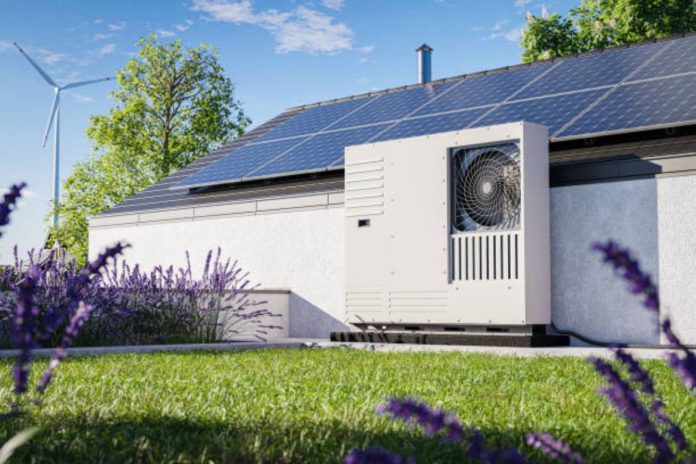In an era of increasing awareness about climate change and environmental sustainability, homeowners are looking for ways to reduce their carbon footprint and embrace eco-friendly living. Adopting sustainable energy solutions not only helps the environment but also leads to significant savings on energy bills. In this blog post, we’ll explore practical tips for homeowners interested in implementing sustainable energy solutions, including solar energy systems, energy-efficient appliances, and smart home technology.
1. Harnessing Solar Energy
Solar Energy Systems
One of the most effective sustainable energy solutions for homes is the installation of solar energy systems. Solar panels convert sunlight into electricity, providing a renewable energy source that can power your home. Here are some key considerations:
- Evaluate Your Home’s Solar Potential: Assess your roof’s orientation, shading, and size to determine if solar panels are a viable option. South-facing roofs with minimal shade are ideal for solar installations.
- Invest in Quality Solar Panels: Research and choose high-quality solar panels that offer durability and efficiency. Look for panels with high energy conversion rates to maximize your investment.
- Consider Battery Storage: Pairing your solar energy system with battery storage allows you to store excess energy generated during the day for use during nighttime or cloudy days. This enhances your energy independence and ensures you have power when you need it.
Financial Incentives
Many governments offer incentives, tax credits, or rebates for homeowners who install solar energy systems. Check with local authorities or renewable energy organizations to explore available financial assistance and incentives to make your transition more affordable.
2. Energy-Efficient Appliances
Upgrade to Energy Star Appliances
Replacing old appliances with Energy Star-certified models can significantly reduce your home’s energy consumption. Energy Star appliances meet strict efficiency guidelines set by the U.S. Environmental Protection Agency, ensuring they use less energy and water without sacrificing performance. Consider upgrading:
- Refrigerators: Newer models consume up to 50% less energy than older counterparts, resulting in substantial savings over time.
- Washing Machines: High-efficiency washers use less water and energy while providing effective cleaning, making them a great addition to any eco-conscious home.
- Lighting: Switch to LED bulbs, which use at least 75% less energy than traditional incandescent bulbs and last significantly longer.
Smart Thermostats
Investing in a smart thermostat can further enhance your home’s energy efficiency. Smart thermostats learn your heating and cooling preferences, allowing them to adjust temperatures automatically based on your schedule. This technology helps to optimize energy usage, reducing costs while maintaining comfort.
3. Embracing Smart Home Technology
Smart Home Energy Management Systems
Smart home technology can significantly contribute to reducing energy consumption. Consider integrating a smart home energy management system that allows you to monitor and control your energy usage in real time. These systems can provide insights into energy consumption patterns, helping you identify areas for improvement.
Smart Power Strips
Many devices continue to draw power even when turned off, known as “phantom load.” Smart power strips can help mitigate this issue by cutting off power to devices that are not in use. This simple addition can lead to noticeable savings on your energy bills over time.
Home Automation
Automating your home’s lighting and temperature control can lead to more efficient energy usage. Set timers for lights to turn off when they’re not needed or adjust your thermostat based on when you’re home or away. Smart home technology can seamlessly integrate various devices to enhance energy efficiency throughout your home.
4. Sustainable Landscaping and Insulation
Landscape for Efficiency
Consider landscaping your yard with native plants that require minimal water and maintenance. Planting trees strategically can provide shade, reducing the need for air conditioning in the summer and lowering energy costs. Additionally, using drought-resistant plants can contribute to water conservation efforts.
Insulation Improvements
Proper insulation is essential for maintaining a comfortable home and reducing energy consumption. Ensure your home is well-insulated to prevent heat loss in the winter and keep cool air inside during the summer. This can significantly reduce your heating and cooling costs.
Conclusion
Embracing sustainable energy solutions in your home is not only beneficial for the environment but also for your wallet. By harnessing solar energy, upgrading to energy-efficient appliances, and integrating smart home technology, you can make eco-friendly choices that promote sustainability and reduce energy consumption.
Taking small steps today can lead to significant savings and a healthier planet for future generations. Whether you’re considering a complete overhaul or implementing minor changes, the journey toward a more sustainable home is both rewarding and impactful.









